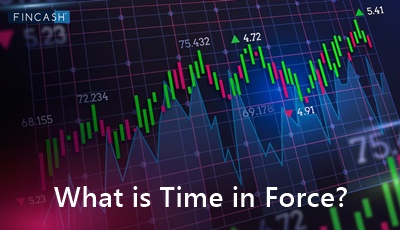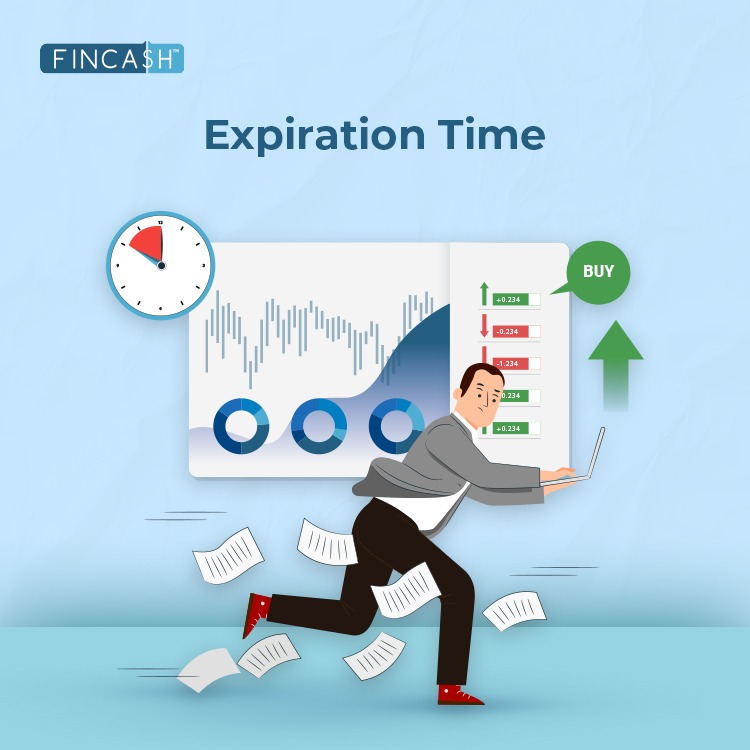What is Time Decay?
The rate at which the value of an options contract decreases over time is calculated as time decay. With less time to profit from the deal, time decay quickens as an option's time-to-expiration approaches.
Working of Time Decay
Time decay is the decrease in an option's value as the expiration date gets closer. The time value of an option refers to how much time is factored into the option's premium or value. As the expiry date draws nearer, there is less time for an investor to profit from the option, which causes the time value to decrease or time decay to quicken. Calculating this number will always be negative because time can only travel in one direction. As soon as the option is first purchased, time decay accumulates and lasts until expiration.
Time Decay's Positive Aspects
Here are the pros of time decay:
- Early in an option's existence, time decay is gradual, increasing the option's premium or value
- Investors can sell the option while it still has value when time decay is slow
- Investors can decide if an option is worthwhile based on how time decay affects the premium
Talk to our investment specialist
Time Decay's Negative Aspects
Here are the cons of time decay:
- As an option's time to expiration approaches, time decay quickens
- It can be challenging to calculate an option's rate of time decay
- Whether the Underlying asset's price has increased or decreased, time decay still happens
Time Decay Formula
Here is how the option time decay formula works:
Time Decay = (Strike price – stock price) / Number of days to expiration
Example of Time Decay
A trader wants to purchase a Call Option with an Rs. 20 strike price and Rs. 2 premium per contract. When the option expires in two months, the investor anticipates the stock to be at Rs. 22 or higher. However, a contract with the same strike price of Rs. 20 that has one week to go until it expires carries a premium of 50 cents per contract. Given that it is improbable that the stock will increase by 10% or more in the next several days, the contract is much cheaper than the Rs. 2 contract. In other words, with two months till expiration, the second option's extrinsic value is smaller than the first option's.
What Effect does Time Decay have on Option Prices?
The main Factor affecting option prices is time decay. Intrinsic Value is the increase or decrease in an option's price that results from a change in the value of the underlying securities. The amount by which an option's cost exceeds its inherent value is known as the time premium and is virtually always negative. When an option's expiration date draws closer, some of its time premium will be lost.
In actuality, as an option approaches expiration, time decay speeds up. The result is that options with little time left to expiration are frequently worthless since they are already extremely near to being essentially worthless. Prices fluctuate according to how confident traders and investors are that specific stock Market occurrences will occur. Or if they think it makes more sense to hedge their positions or take profits on existing ones rather than letting them run their full course.
It indicates that time decay reduces the time value portion of an option's premium, raising the intrinsic value of the Underlying Asset. Since an option has a greater intrinsic value that time decay can diminish, it has the greatest impact in the final month before expiration. Time damages the values of the majority of options. The value of an opportunity decreases as its expiration date draws nearer. It is primarily due to two causes. First, there is less time left until the options expire. Second, time decay has a greater impact on an option's pricing the more In-The-Money (ITM) it is.
compounding the effects of these two elements causes the option's value to drop quickly. As a result, the rate at which an option's value decreases quickens as expiration draws near. It indicates that hanging onto your trade now carries greater risk than when you first established your position. Overall, a fundamental knowledge of time decay aids in the explanation of some of the impacts that might arise during times of high Volatility and other market circumstances that can result in a sudden decline in Implied volatility.
The Bottom Line
Investors interested in trading options should know that a contract's value is impacted by its expiration date. If you purchase options very close to expiring, you should be ready for a sharp decline in their value. Some options traders take advantage of this by selling options near their expiration date. Still, you must be prepared to incur the dangers, including the possibility of limitless losses, associated with it.
All efforts have been made to ensure the information provided here is accurate. However, no guarantees are made regarding correctness of data. Please verify with scheme information document before making any investment.











